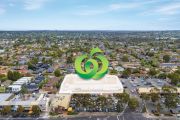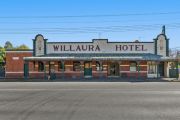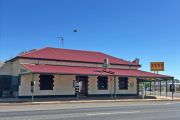
Should you buy an established business or start your own from the ground up?
Many people harbour a dream of one day owning their own business, but sometimes they just don’t know where to begin.
They might have a brilliant idea for a start-up, or they could have seen a good existing business for sale they’d fancy having a go at buying and operating.
But for Steve Finn, co-founder and director of Finn Business Sales of national business brokers, no one should make any decisions before asking themselves two critical questions: what do you want out of a business; and what are you good at?
There are 75,000 businesses on the market in Australia at any one time, and most of them are good, but you need to find the right match for you and your circumstances, where you are in life, and what you’re looking to achieve from that business, he advises.
“So, the best way is to reverse-engineer the decision,” Finn said. “What do you want out of it – do you need to make some money, build wealth by using the profits to grow so you can sell later on, or something for an income that’s close to home and that you might do with a partner, or that involves technology or travel?
“And what’s your strength? Is it sales or numbers or administration or marketing? Are you maybe good at growing a business? If you can find a business that meets your needs and you’ll enjoy it, then you could be really successful.”
Then there’s the dilemma of whether to start your own business from scratch or whether to choose one to buy that’s already operational so you have a much clearer idea of its feasibility, profitability and markets.
In that, there are few people around with as much experience as Farzin Hesari, CEO of LINK Business Brokers Australia. He’s done both – and each successfully, and each with its own share of disappointments.
At the age of 17, in the late 1990s, he saw DVDs as the future of viewing, with VHS, by then, on the way out. The only problem was the enormous cost of DVD players. As a result, he found a way of importing machines from China at a fraction of the price and – operating from his parents’ garage – he ended up selling them into more than 500 stores around Australia.
“It turned into a big business, but I learned from my mistakes,” Hesari said. “Now, my advice would be to buy a business that is already established. The groundwork is there, the hard yards have already been done, and you can see where the future lies.
“At 17, I was making good money but I was terrible at things like BAS [Business Activity Statements] and taxes and putting money aside. You need knowledge and skills as well as just a good idea and drive. But most importantly, I learned that you have to chase passion rather than money.”
Hesari says many people buy a business because they want it to supply an income, but they also need that passion, as well as vision and the capacity to work hard, to succeed. For instance, many people love cafes, but they forget you have to get up at six every morning, and it’s hard to lead a balanced lifestyle when you have a business like that.
If you’re a real coffee enthusiast, however, that will push you through, and you could well love working in that environment and make it a huge success.
You have to take your age and stage in life into account, too, he counsels. While at 17, it was fine to put everything on the line; in your mid to late 30s, you might have a mortgage to pay and a family to look after, so you will be a great deal more risk-averse.
“An established business doesn’t involve as much risk as you can see its history, its financial position, its accounts and how well it’s going and imagine if you can do better,” he said. “Also, the time to success is shorter. But you always also have to take your own skills and how you’re going to execute those skills into the equation.”
Rebecca Ullman, chief executive of LINK Business Brokers, agrees that buying an existing business can work much better than starting one’s own.
“If you’re starting your own business, you have to invest in systems and processes and everything else,” she said. “On the other hand, if you’re buying a business, you’ll already have the framework, existing customers, a name and a premises.
“That all makes it much easier to start with. You’ll also have the books, so you know what kind of revenue you are working with, and what you can build on. “As well, most of the businesses we sell are profitable, so you’re in profit from day one.”
Yet whichever one you decide on, it’s important to prepare carefully, says Kevin Lee, director of First Choice Business Brokers.
“If you’re going to buy a business, you need to understand your financial position and do a full analysis of the business, which your broker can help you with,” Lee said. “Or if you want to start your own business, you can also discuss with your broker your background, skills, experience and credentials for advice.”










